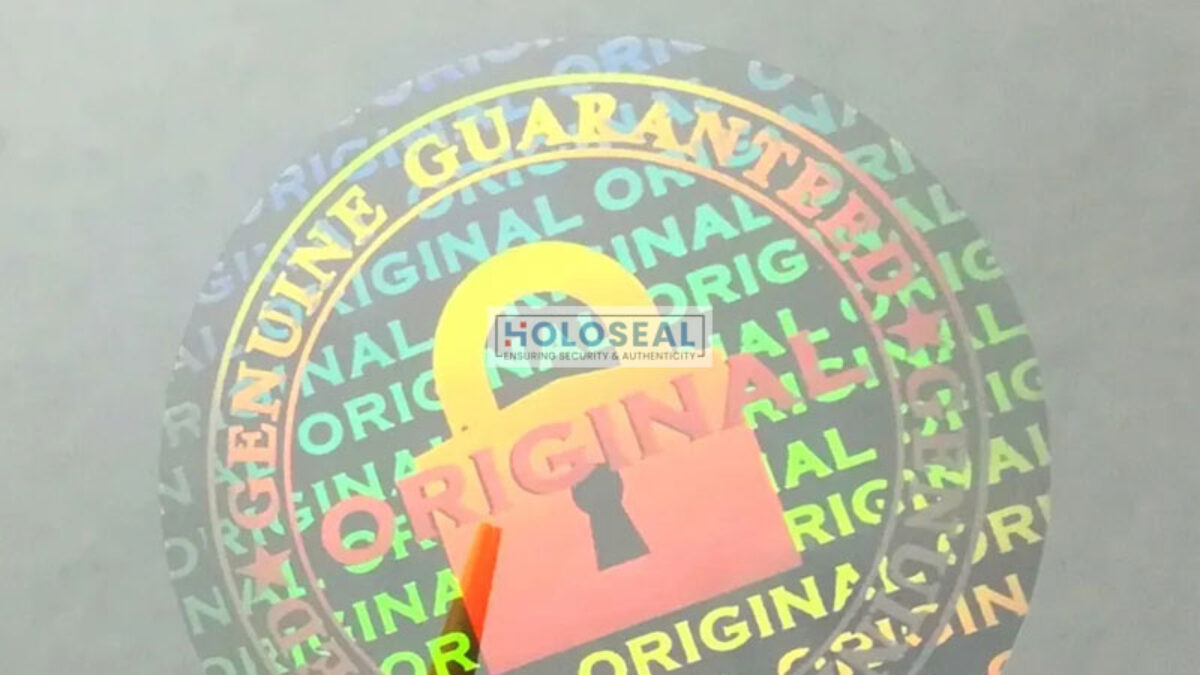In an age characterized by widespread counterfeiting and fraudulent activities, safeguarding the authenticity of Indian goods has emerged as a critical concern. A potent weapon in this battle against counterfeit products is the deployment of authentic hologram labels. These seemingly small yet highly effective security features offer a multifaceted approach to protecting Indian goods, bolstering consumer confidence, and upholding the integrity of brands and products.
Anti-counterfeit hologram labels are more than just aesthetically pleasing; they serve as a sophisticated barrier against counterfeiters, boasting a blend of overt and covert security elements that are exceedingly difficult to replicate. Manufactured using advanced technologies, these labels produce intricate, three-dimensional images that are challenging to duplicate accurately. Consequently, they act as a visual deterrent to counterfeiters, signaling to consumers that the product is genuine and reliable.
Additionally, security hologram labels often incorporate supplementary security features, including unique serial numbers, microtext, and concealed images, which are virtually impossible to mimic using standard printing methods. These covert attributes not only enhance the product’s authenticity but also facilitate tracking and tracing throughout the supply chain, thereby reducing the risk of illicit trade and counterfeit infiltration.
The application of custom hologram labels transcends physical products to encompass various sectors of the economy, such as pharmaceuticals, electronics, cosmetics, and luxury goods. For instance, in the pharmaceutical industry, holographic labels play a crucial role in safeguarding public health by thwarting the circulation of counterfeit drugs, which pose significant risks to consumers. By integrating tamper-evident features and unique identifiers, these labels offer assurance to consumers that the medication they are purchasing is authentic and safe.
Furthermore, personalized hologram labels serve as a cost-effective solution for brand protection, yielding tangible returns on investment for manufacturers. By deterring counterfeiters and preserving brand integrity, these labels help safeguard revenue streams and prevent reputational harm stemming from counterfeit proliferation.
In India, the adoption of hologram labels has gained momentum in recent years, driven by growing awareness of counterfeit threats and the imperative to safeguard indigenous products and brands. Government initiatives, such as mandating hologram labeling for certain products, have further propelled the uptake of this technology across various industries.
However, while hologram labels represent a significant advancement in the fight against counterfeiting, their effectiveness hinges on continuous innovation and collaboration among stakeholders. Manufacturers must remain vigilant in staying ahead of counterfeiters by integrating state-of-the-art security features into their hologram labels. Additionally, regulatory bodies and law enforcement agencies play a pivotal role in enforcing compliance and prosecuting counterfeiters to ensure the efficacy of hologram labeling initiatives.
In conclusion, holographic labels serve as a frontline defense in safeguarding Indian goods against counterfeiting and illicit trade. By providing a robust layer of security and authenticity verification, these labels instill confidence in consumers, protect brand reputation, and contribute to the overall integrity of the marketplace. As India continues to embrace innovation and technology, hologram labels will undoubtedly play an instrumental role in preserving the authenticity and competitiveness of its products on both domestic and international platforms.




